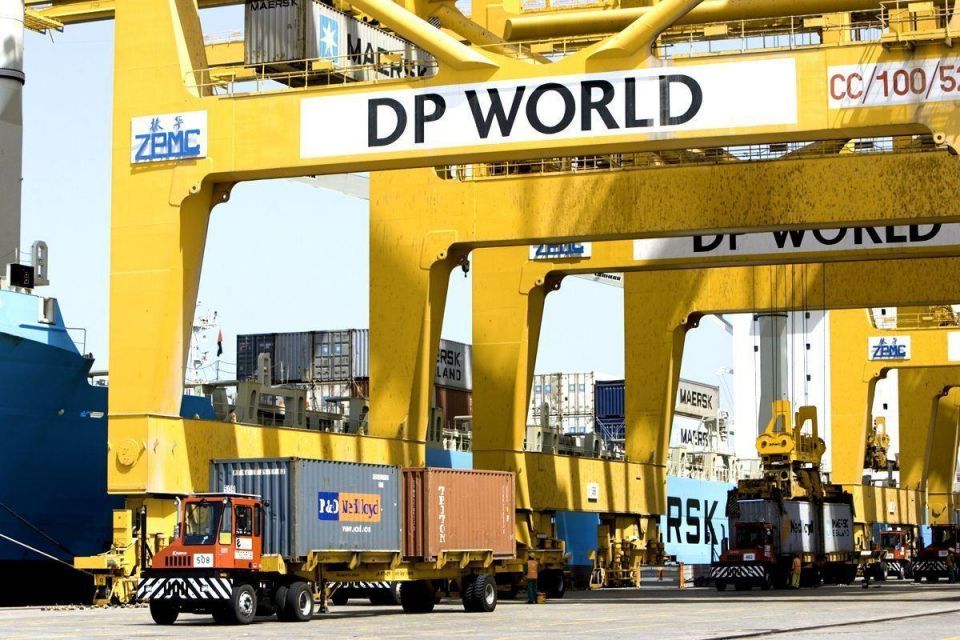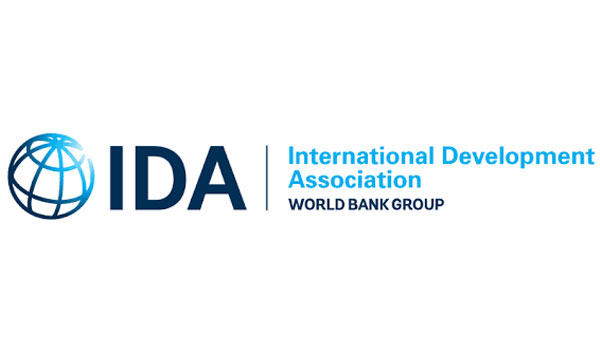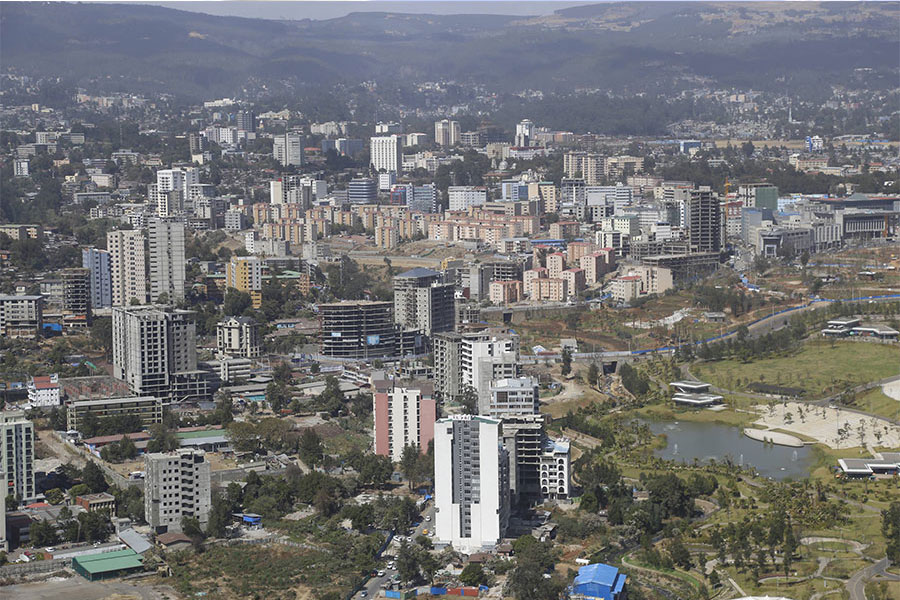
Sep 16 , 2023
By Annalena Baerbock
Fifty years ago, Germany embarked on a significant journey of transformation and introspection by joining the United Nations. Today, it stands as a testament to the principle that a nation can evolve, take ownership of its past, and carve a path defined by respect for international laws, writes Annalena Baerbock, the minister of Foreign Affairs since 2021.
Fifty years ago, on September 18, 1973, by New York's East River, two German states joined the United Nations (UN). This event resulted from a brief General Assembly resolution – however, it was anything but routine business in the world of diplomacy.
Almost three decades after the end of the Second World War that Germany had begun, and the genocide of Europe's Jews that had brought immeasurable suffering to millions of people, this day marked a return of the "defeated enemy nation"; to the international community. We remain grateful for this return today – and see it as an obligation.
Germany's accession to the United Nations came 28 years after the organisation was founded. This accession stands for our acknowledgement of German culpability and our commitment to the principles of the UN Charter, to a world that relies on the strength of the law and not the tyranny of the strong. September 18th stands for a deeply rooted understanding of German diplomacy; that Germany's foreign policy must never limit itself to protecting its interests.
For 75 years, our Basic Law has imposed the requirement for our policy to "promote world peace . . . in a united Europe". This task and our years of United Nations membership are more important now than ever – at a time when fundamental principles of the United Nations are being eroded. That is why we joined over 140 states in the General Assembly in advocating for the people of Ukraine and the principles of the UN Charter.
Because under this Charter, every state has the right to live in peace, without fearing that a stronger neighbour will attack.
We live in a different geopolitical reality than in the days of the Cold War. The opposition of an Eastern and a Western bloc is, fortunately, a thing of the past. Instead, a new multipolar reality is emerging in which we must organise cooperation. More and more states with differing views seek to help shape the international order. And rightly so. It is past time that their voices were heard more clearly.
We, therefore, seek to strengthen our partnerships with all states around the world who value an international order based on rules and the law. This order is no "Western ideology", as some now assert. On the contrary, it is rooted in the UN Charter and thus in the universal conviction that all states and all human beings have equal rights, regardless of how powerful they are, and that no state must ever again be allowed to attack a neighbour.
For us Germans, these principles are also lessons learned from the Second World War and the atrocities Nazi Germany inflicted on its neighbours. We Germans, therefore, have a particular responsibility to strengthen the UN Charter. For this reason, too, we are seeking to gain a seat on the Security Council for the year 2027/28.
Those who are calling into question this order have thus far failed to indicate what principles a better, more just order should be built on. We want to build on what was created in 1945 and has been continuously developed since then. We know this order is imperfect and must adapt it to our new world. That means finally organising our international financial institutions and health agencies, as well as the UN Security Council, in such a way that our partners in Africa, Latin America and Asia have a suitable voice there.
It means putting the Sustainable Development Goals (SDGs) at the heart of the United Nations and showing more ambition to curb the climate crisis, the greatest threat of our time. With a clear road map for phasing out fossil energies. And with solidarity for the most vulnerable states, who are particularly hard hit by the effects of the climate crisis. But honest partnerships also mean critically examining our own actions. This is why Germany has initiated the return of artefacts looted during the colonial era. Doing so will not heal all of the wounds of the past. But it is an important step in addressing our dark colonial history.
With our accession 50 years ago, we Germans promised to take responsibility for the United Nations. Today, we do not merely stand by this promise. With our partners, we seek to find new ways to fulfil it in a changed world. With courage and confidence. For a strong United Nations. For a better, more just future for everyone.
PUBLISHED ON
Sep 16,2023 [ VOL
24 , NO
1220]


Fortune News | Dec 12,2020

Fortune News | Mar 26,2022

Radar | Nov 27,2023

Commentaries | Apr 30,2022

Viewpoints | Apr 25,2020

Fortune News | Jun 01,2019

Fortune News | Dec 09,2023

View From Arada | Apr 15,2023

Viewpoints | Apr 13,2024

Radar | Feb 27,2021

Photo Gallery | 174562 Views | May 06,2019

Photo Gallery | 164791 Views | Apr 26,2019

Photo Gallery | 154980 Views | Oct 06,2021

My Opinion | 136691 Views | Aug 14,2021
Editorial | Oct 11,2025

Dec 22 , 2024 . By TIZITA SHEWAFERAW
Charged with transforming colossal state-owned enterprises into modern and competitiv...

Aug 18 , 2024 . By AKSAH ITALO
Although predictable Yonas Zerihun's job in the ride-hailing service is not immune to...

Jul 28 , 2024 . By TIZITA SHEWAFERAW
Unhabitual, perhaps too many, Samuel Gebreyohannes, 38, used to occasionally enjoy a couple of beers at breakfast. However, he recently swit...

Jul 13 , 2024 . By AKSAH ITALO
Investors who rely on tractors, trucks, and field vehicles for commuting, transporting commodities, and f...

Oct 11 , 2025
Ladislas Farago, a roving Associated Press (AP) correspondent, arrived in Ethiopia in...

Oct 4 , 2025
Eyob Tekalegn (PhD) had been in the Governor's chair for only weeks when, on Septembe...

Sep 27 , 2025
Four years into an experiment with “shock therapy” in education, the national moo...

Sep 20 , 2025
Getachew Reda's return to the national stage was always going to stir attention. Once...

Oct 12 , 2025
Tomato prices in Addis Abeba have surged to unprecedented levels, with retail stands charging between 85 Br and 140 Br a kilo, nearly triple...

Oct 12 , 2025 . By BEZAWIT HULUAGER
A sweeping change in the vehicle licensing system has tilted the scales in favour of electric vehicle (EV...

A simmering dispute between the legal profession and the federal government is nearing a breaking point,...

Oct 12 , 2025 . By NAHOM AYELE
A violent storm that ripped through the flower belt of Bishoftu (Debreziet), 45Km east of the capital, in...